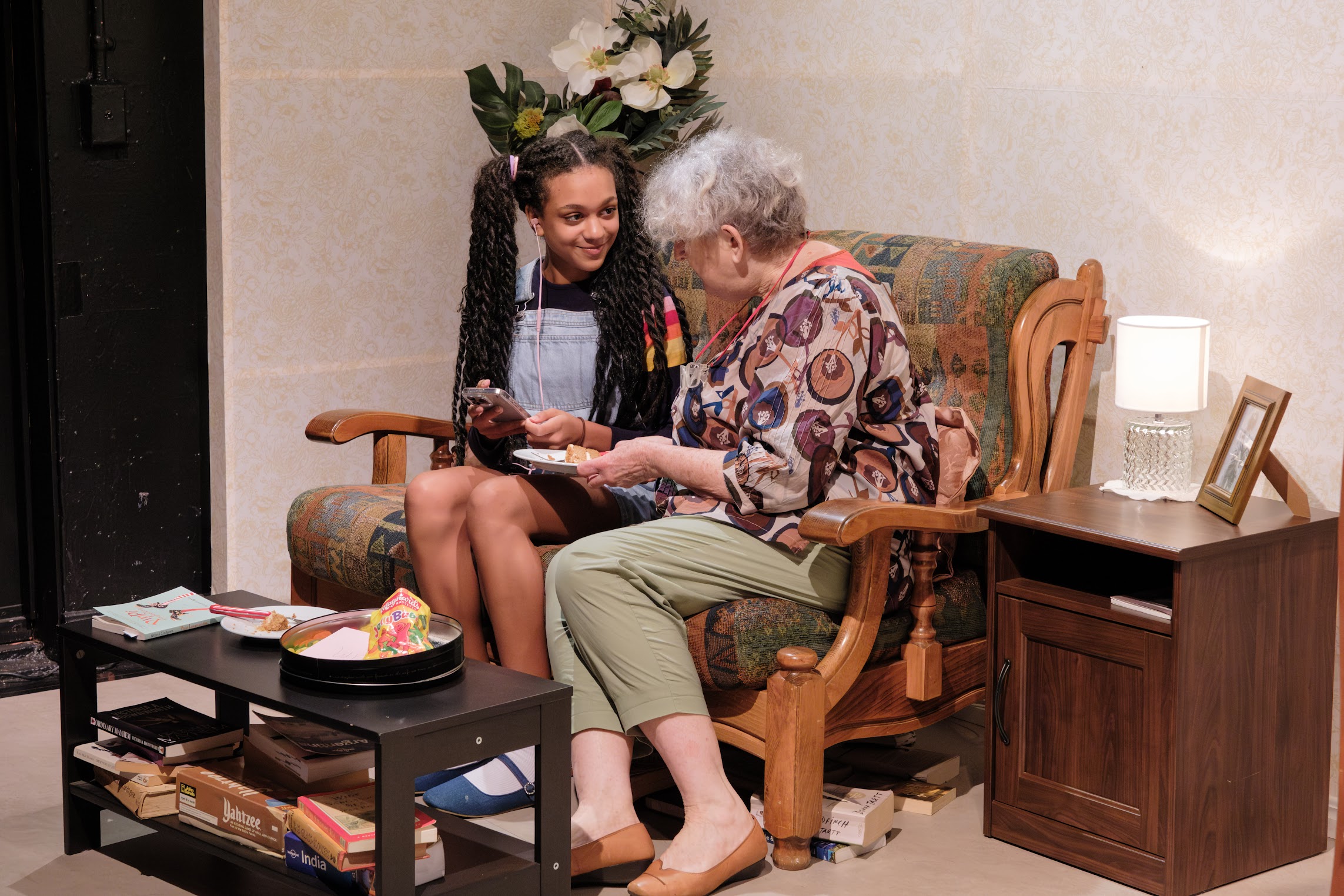
STILL POINT TURNING
STILL POINT TURNING: The Catherine McGregor Story, Sydney Theatre Company at Wharf 1, 26 April-26 May 2018. Photography by Philip Erbacher
It’s an extraordinary conceit, when you think about it, that we - as a society - become exercised to the point of violence, or worse, by another person choosing to be who they want to be. And yet mostly we don’t think about it, nor about the two acceptable tick boxes into which we’re shoved as we exit the womb: male or female.
Still Point Turning, written (and directed) by Priscilla Jackman from lengthy interviews with Catherine McGregor, is about one person’s life struggle to be freed from the wrong label. Born Malcolm in Toowoomba, the child was eight years old when the first inkling presented itself that the carapace of boyhood was ill-fitting. And as the years went by it gradually became a crushing psychic burden.
Now in her 60s, after “successful” conventional careers and life as a male that masked extreme misery, Cate is finally the woman – trans-woman, she insists – she for so long knew herself to be. By any measure it’s an extraordinary story and her transitioning is a major – but not the only – part of it.
Played out on a deceptively empty stage, the set, designed by Michael Scott-Mitchell, shifts place and time via floor-to-ceiling scrims suspended from the back wall and on a semi-circular track around which they’re spun by cast members; depth of meaning and focus – desolation, blinding public spotlight, bewilderment – are implied, heightened and integrated with Nick Schlieper’s precise, sensitive lighting.

In the centre of this maelstrom – signified by a small ensemble playing across many roles including boy Malcolm, Malcolm the talented cricketer and Malcolm the highly-regarded military man – is the single still point of the piece, the Catherine we’ve come to know in recent times, brilliantly embodied by Heather Mitchell.
Statuesque in an eye-popping Carla Zampatti suit, this is initially the familiar svelte, sophisticated, articulate media performer. But as she relates events – year and place rather than name, rank and number but similarly rapped out and matter-of-fact – what we also get is the private Cate – bawdy and funny, astute, acute, self-deprecating and occasionally self-defeating. A real person, flaws and all.
McGregor was obviously skin-rippingly honest in what she told Jackman in the course of the play’s making and the script doesn’t flinch from these truths. The effects of alcoholism on a life are graphically related as Cate/Heather recalls Malcolm’s rollercoaster work life. He was a successful soldier, he resigned and became a political speechwriter and adviser (Labor and Liberal at high levels) and then went back to soldiering and command in East Timor. With him for most of this time was his beloved wife – with whom, after their own difficult transition – Cate is close friends.
Over the play’s hour and 40 minutes Heather Mitchell commands the stage in her tallest performance in years. It’s not mimicry yet she channels the essential Cate in a three-dimensional characterisation which is by turn tender, robust, vulnerable and hilarious. It’s difficult to look elsewhere even during the occasional longueurs which are almost inevitable when writer and director are one and the same.

The actors – Nicholas Brown, Andrew Guy, Chantelle Jamieson, Ashley Lyons and Georgina Symes – are clad throughout in ill-fitting, quasi-military khaki suits. After a while it becomes apparent these symbolise how “ill-fitting” life has been for Cate. (Dictionary definition: [of] a garment the wrong size and shape for the person wearing it.) Each member of the cast is a multi-faceted piece of the McGregor puzzle and fits unselfishly and effectively into the whole.
All in all, this production is remarkable. It’s entertaining and challenging, the everyday is turned on its head along with cliches and prejudices. Laughter and tears are rarely far from the surface and on opening night the audience rose as one to applaud not only the performers but Cate McGregor herself: in the house and confronting yet another of her life’s challenges!
As someone who’s revealed to us her deep fear of dying on the operating table during her transition, she ought to have the last word. In 2014 Cate was interviewed by Women’s Weekly and said, “The feeling of harmony is enormous. And I hope this isn’t too morbid, but I’ve also lost my fear of death. I used to fear that I might die without the people I love ever having known me. But now I have shown who I really am, and if I go tomorrow, at least I go complete.”
Recommended without hesitation.
Comments
Leave a Comment
Enter your username and password to comment. Don't have a username? Register now.




Be the first to leave a comment below